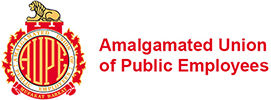Our Journey
Experience the breathtaking sand art performance that beautifully captured the key milestones that have shaped AUPE into the strong union it is today.
Public service workers were paid as low as 50 cents a day for their work and faced financial difficulties.
There were 57 unions of public employees and there was a strong need for one union representing the civil service. AUPE was formed in 1959 with the merger of The Postal and Telecommunications Uniformed Staff Union and the Singapore Union of Postal and Telecommunication Workers; followed by the integration of seven other Government, City Council and statutory board employees’ union.
AUPE was led by its first Executive Council with Mr G Kandasamy as the General Secretary.
Public Service officers suffered cuts in variable allowances as the government did not have much reserves. The pay cuts affected officers in Division I to III. Division I and II officers negotiated and restored the allowances in the form of professional allowance. AUPE requested for direct negotiations with the Government in 1960 to restore the allowance for the Division III officers.
Negotiations went on for months until May 1961, when Dr Goh Keng Swee, then Minister of Finance and Mr G Kandasamy, then General Secretary of AUPE, announced the partial restoration of cut, backdated till 1 Jan 1961. Only members of AUPE were eligible for this restoration.
In September 1961, allowances were restored in full.
First Foundation Stone of Wisma AUPE
We first thought of building our own headquarters in 1962.
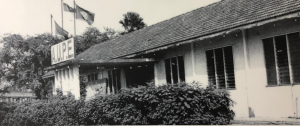
First AUPE HQ at Serangoon Road in 1959.
AUPE bought the land for the future Wisma AUPE. A Building Fund was set up and union members could contribute for a brick or $100 for a donor’s board.
Nurses’ Strike
On 7 June 1963, more than 1000 nurses went on strike due to issues of salary, working conditions and treatment by superiors. The strike was held after a 2-week strike notice was served on the Permanent Secretary of Health. After a day of strike, PM Lee Kuan Yew invited AUPE representatives for a meeting. Both parties agreed to refer the matter to arbitration and the strike ended on 12 June 1963.
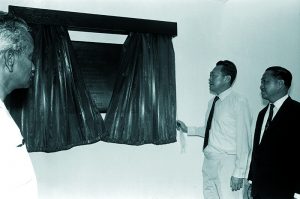
Wisma AUPE Officially Open
Wisma AUPE was officially declared open on 2 April 1972 by then-Prime Minister Lee Kuan Yew. Wisma AUPE stands as a monument of our dreams, belief and faith in the Union.
Unprecedented 13th Month Pay
At the opening of WISMA AUPE, Mr Lee Kuan Yew announced that an unprecedented 13th month pay would be given out that month to all civil servants. This was over and above the extra month’s payout in December.
Formation of Works Committees with the Union
Works committees were formed in various ministries to look into mutual cooperation between officers and staff, work efficiency and complaints. These committees solidified AUPE’s role as a partner to the public service in the economic progress of Singapore.
Mutual Aid Schemes & Public Employees Scholarship Fund
Mutual aid reliefs were offered to AUPE members to help members in need.
AUPE, along with other public sector unions, established a Public Employees Scholarship Fund to benefit children of members from the participating unions. A total of $100,000 was raised.
AUPE Pays for Members’ Hospital Ward Charges
Prior to July 1980, public employees paid a maximum of 1% of their salary for hospital ward charges. This medical scheme was changed in July 1980 and public employees had to pay 20% of the public rate ward charges. To alleviate the burden on members, especially lower income members, AUPE introduced a hospitalisation scheme provided ward charges based on members’ ward eligibility.
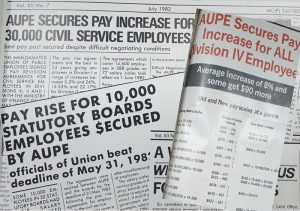
Pay Rise of 4.4% to 24% for Civil Service Personnel
AUPE secured pay rise for all grades of civil service personnel – 8% increase for Division IV while Division I, II and III had a range of 4.4% to 24% increase. This brought salaries of civil service employees on par with private sector.
Ushering in the Computer Age
Computers and office automation were rapidly introduced in the Civil Service. AUPE held customised courses at very low fees to help union members overcome fear and learn to take advantage of new technology to improve skills and productivity.
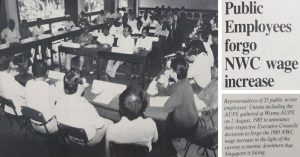
Public Employees Forgo Wage Increase
High wage policy, coupled with external factors saw Singapore entering her first economic recession in 1995. AUPE announced that 68,000 members from 25 unions in the public sector would forgo the National Wage Council wage increase recommendations earlier that year.
To tide through the crisis, public employees also gave up their half month incentive payments in 1986, 1987 and took an average paycut of 2.27% of gross salaries in 1987. CPF contribution rates were also cut by 15 percentage points. Measures were less painful with AUPE’s representation to the government but still a very trying time for all.
These sacrifices paid off as Singapore’s economy rebounded and grew by 11% in 1988. AUPE called for a higher bonus and the Government responded favourable with an announcement of 2.5 months year-end bonus – the highest amount in the history of public service then. Wages were also restored in July 1988 and a flexible wage system implemented.
Sports and Recreational Activities for Members
AUPE Sports and Recreation Club was founded in 1987 to provide social, sports and recreational activities for members, their families and friends.
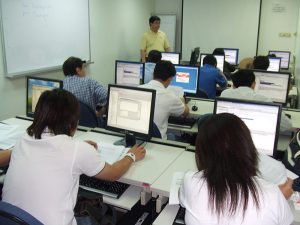
Better Pay, Better Work Prospects
Officers in the Executive, Clerical, Paramedical & Technical and Related services received pay increases in 1990 after long hours of research, analysis and meetings between AUPE and PSD. The revision was a results of high resignation rate among graduate officers, uncompetitive wages and also to enhance career advancement prospects.
Night duty & driving allowance were also given to eligible officers in 1993, after years of representation by AUPE to the Government.
A Voice for Members in Disciplinary Inquiry
The Public Service Commission First Youth Chapter Disciplinary Regulations introduced in 1964 allowed only lawyers and public officers to represent members in disciplinary inquiry, but not union officials. For 32 years, AUPE requested, at every NTUC Delegates Conference, for union officials to be allowed to represent members. This paid off when union officials were finally allowed from 1997 to represent their members in such instances.
Co-operative Formed for Service & Facilities
The AUPE General Services Co-operative (GSC) was set up to pursue ventures such as food and beverage services, house renovation, publishing and other facilities promoting economic interests.
GSC evolved over the years and currently manages the Hospitalisation Scheme on behalf of the Union and a loan guarantee scheme to help members take up loans with the AUPE Credit Co-op (formerly known as Multi-purpose Co-operative).
AUPE Donates $100,000 For Members’ Training
AUPE is a strong advocate for skills upgrading to ensure lifelong employability of members. The donation from AUPE helped the NTUC Skills Development Department set up a new computer training room to increase training capacity by 25 places per day.
AUPE, AUPE Credit Co-op (formerly Multi-purpose Co-operative), AUPE General Services Co-operative and AUPE Club amalgamated to form the AUPE Group, to pool resources and function more effectively and efficiently for our members.
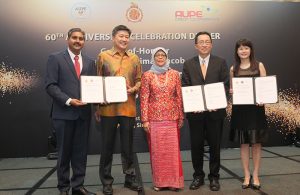
AUPE And PSD Affirms Labour Management Ties With MOU
With the changing demographics of the Civil Service employees, it is important to adapt to a flexible and seamless ways to resolve issues concerning employees of all levels. In this MOU, both parties pledged to consult on changes to existing, or proposals for new service-wide terms and conditions of service.
AUPE Represents Academic Staff in Polytechnics
Nanyang Polytechnic, Singapore Polytechnic and Temasek Polytechic gave recognition to AUPE as the union representing both the academic and non-academic staff for all employment matters. Previously, only non-academic staff were collectively represented and covered in the collective agreements.
Cluster Training Committee With PSD And CSC TO Upskill & Reskill Public Service Employees
The Committee agrees to collaborate to raise employability and skills of public officers through helping officers do better jobs, do their jobs better, and get new jobs. AUPE will work closely with our partners to ensure no officer is left behind. Because every worker matters.
